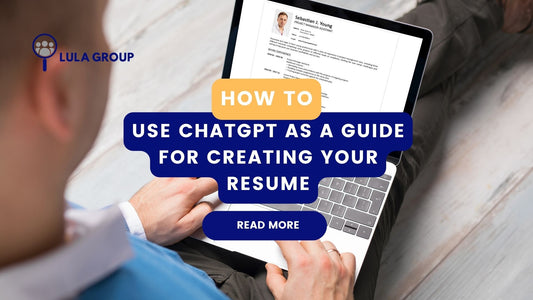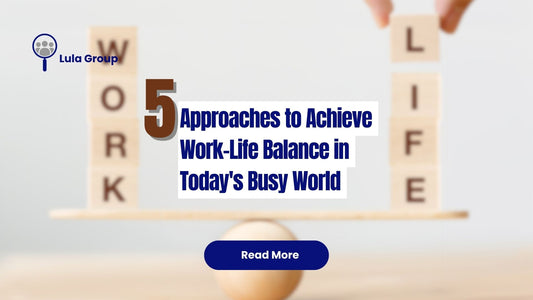Job interviews can be nerve-racking experiences, but with an interview preparation to-do list, you can increase your chances of success.
In this step-by-step guide, we will walk you through the ultimate interview preparation to-do list. From researching the company and the role to understanding common interview questions and how to answer them, this comprehensive guide will help you ace your job interview.
So, let's dive in and start preparing for your future success!
But first, take a look at this:
All job seekers have a 26.24% probability of receiving a job offer.
This indicates the importance of clearing the job interview if you want to work at your favourite company. Now let's continue…
The Importance of Interview Preparation
Preparing for an interview is crucial because it helps you showcase your skills, knowledge, and enthusiasm to potential employers. You demonstrate your commitment and dedication to the role by investing time and effort into interview preparation.
Additionally, thorough preparation helps boost your confidence and reduces anxiety, enabling you to perform at your best during the interview.
The Ultimate Interview Preparation To-Do List
1. Researching the Company and the Role
47% of recruiters said they would reject a candidate who had little knowledge about the company they’re applying for.
Before your interview, it's essential to research the company thoroughly which is why it's on top of our interview preparation to-do list. Start by visiting the company's website and familiarise yourself with its mission, values, and recent achievements.
Take note of any notable projects or initiatives the company is involved in. This information will help you understand the company's culture and align your answers with their values during the interview.
Next, dive deeper into the role you're interviewing for. Analyse the job description and identify the responsibilities and requirements. Make a list of your relevant skills and experiences that match the job requirements.
You show the interviewer that you are genuinely interested and prepared by demonstrating your understanding of the company and the role.
2. Understanding Common Interview Questions and How to Answer Them
This is the second step in this Interview preparation to-do list. While you can't predict every question you'll be asked during an interview, some common questions are frequently asked.
Take the time to prepare thoughtful responses to these questions, highlighting your skills and experiences.
Here are a few examples of common interview questions and tips on how to answer them:
- "Tell me about yourself." - This question allows you to give a brief overview of your professional background and highlight your key achievements. Focus on relevant experiences and skills that make you a strong fit for the role.
- "What are your strengths and weaknesses?" - When discussing your strengths, choose ones that apply to the job. For weaknesses, mention areas where you have improved or actively working on improving.
- "Why do you want to work for our company?" - Showcase your knowledge of the company by mentioning specific aspects that appeal to you, such as its values, culture, or industry reputation.
Remember, practice makes perfect. Conduct mock interviews with a friend or family member to refine your answers and ensure they are concise and impactful.
3. Practicing Your Interview Skills
67% of recruiters feel eye contact is crucial to making a good impression.
39% of the candidates leave a bad impression due to their overall confidence level, voice quality, or lack of a smile.
Preparing for an interview is not just about researching and memorising answers. Practicing your interview skills to build confidence and improve your delivery is also crucial. That's why we added it to our Interview preparation to-do list.
Consider the following tips to enhance your interview skills:
- Practice answering questions out loud - By verbalising your responses, you can identify areas where you stumble or need improvement. Focus on clarity, articulation, and maintaining a confident tone.
- Use the STAR method - When answering behavioural questions that require you to provide examples of past experiences, use the STAR method: Situation, Task, Action, Result. This structured approach helps you provide comprehensive and concise answers.
- Record yourself - Use your smartphone to record a mock interview. Analyse your body language, facial expressions, and overall presentation. Make adjustments as needed to appear confident and professional.
Remember, the more you practice, the more comfortable and prepared you will feel on the day of the interview.
4. Dressing Appropriately for the Interview
71% of employers wouldn’t hire someone who doesn’t follow the appropriate dress code.
Your appearance plays a significant role in creating a positive first impression during an interview which is why it's on our interview preparation to-do list.
Dressing appropriately shows respect for the company and the interview process. Here are some guidelines to help you dress for success:
- Research the company dress code - Take cues from the company's website or employee pictures to understand their dress culture. Aim to dress one level above the expected attire to demonstrate professionalism.
- Choose professional and conservative attire - Opt for a suit or a well-tailored outfit appropriate for the industry and position. Avoid excessive accessories, revealing clothing, or distracting patterns.
- Pay attention to grooming and hygiene - Ensure your hair is well-groomed, your nails are clean, and your shoes are polished. Avoid strong perfumes or colognes that may be overpowering.
Remember, it's better to be slightly overdressed than underdressed for an interview.
5. Gathering Necessary Documents and Materials
To avoid last-minute stress, gather all the necessary documents and materials you'll need for the interview in advance. Here's a checklist to help you get organised:
Resume and cover letter - Print multiple copies of your updated resume and cover letter on high-quality paper. Keep them in a folder or a portfolio to maintain their pristine condition.
Read: 6 tips to create an ATS-compliant resume
- Portfolio or work samples - If applicable, bring along a portfolio showcasing your work or any relevant samples that demonstrate your skills and expertise.
Read: Top 10 Skills Employers Are Looking For In 2023
- Identification - Carry a valid form of identification, such as a driver's licence or passport, in case it is required for security purposes.
By having all the necessary documents ready, you can focus on presenting yourself confidently during the interview.
6. Gathering References and Recommendations
Referred candidates are five times more likely to be hired.
Strong references and recommendations can significantly enhance your chances of securing a job offer. Before your interview, reach out to individuals who can vouch for your skills and work ethic.
This may include former supervisors, colleagues, or mentors. Ask for their permission to use them as references and provide them with an updated copy of your resume and details about the role you're interviewing for.
Additionally, consider requesting written recommendations from individuals who can speak to your abilities. These recommendations can be included in your portfolio or shared digitally as needed.
Having positive feedback and endorsements from credible sources can make a lasting impression on potential employers.
7. Preparing Questions to Ask the Interviewer
Towards the end of an interview, the interviewer will typically ask if you have any questions for them.
This is your opportunity to demonstrate your curiosity and engagement. This is the reason it's on our Interview preparation to-do list. Prepare a list of questions that showcase your interest in the company and the role. Here are a few examples:
- "Can you tell me more about the company's long-term goals and how this role contributes to them?"
- "What is the company's approach to professional development and growth opportunities for employees?"
- "How would you describe the company culture and the team dynamics within this department?"
Asking relevant and insightful questions helps you gather important information, and also shows the interviewer that you are genuinely interested in the position.
8. Arriving Early and Managing Interview Nerves
Arriving early for an interview is a sign of professionalism and allows you to gather your thoughts before the meeting.
Plan your travel route and aim to arrive at least 15 minutes before the interview. This buffer gives you time to compose yourself and review any last-minute notes.
If you're feeling nervous before the interview, try these strategies to manage your nerves:
- Practice breathing exercises - Deep breathing can help calm your nerves and reduce anxiety. Take slow, deep breaths in through your nose and exhale slowly through your mouth.
- Visualise success - Imagine yourself confidently answering questions and engaging in conversation during the interview. Visualising a positive outcome can help alleviate anxiety.
- Focus on your strengths - Remind yourself of your qualifications and achievements. Confidence in your abilities can help boost your self-assurance.
Remember, nerves are natural, and interviewers understand that. By arriving early and implementing relaxation techniques, you can present yourself in a calm and composed manner.
9. Following Up After the Interview
This is the last step in our interview preparation to-do list. Because after the interview, it's essential to follow up with a thank-you note or email to express your gratitude and reiterate your interest in the position. Here are some tips for writing an effective follow-up:
- Send your note within 24 hours - It's best to send your thank-you note promptly to ensure it is received while the interview is still fresh in the interviewer's mind.
- Personalise your message - Mention specific details from the interview that stood out or any key points you discussed. This shows that you were attentive and engaged during the interview.
- Reiterate your interest - Express your continued enthusiasm for the role and the company. Briefly mention how your skills and experiences align with the position.
By sending a thoughtful follow-up, you leave a positive impression and demonstrate your professionalism and interest in the role.
By following this step-by-step guide and completing the ultimate interview preparation to-do list, you can confidently walk into a job interview and increase your chances of success.
Remember, thorough preparation sets the foundation for a successful interview. So invest the time and effort, and you'll be well on your way to passing your upcoming job interview. Good luck!
If you are looking for your dream job, we can help you with that. We specialise in partnering with businesses in dynamic industries. Our extensive network includes renowned Unicorn companies, SaaS providers, and MarTech innovators.
Contact us now to get your dream job!




